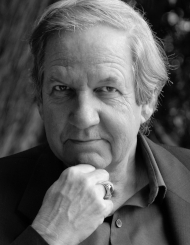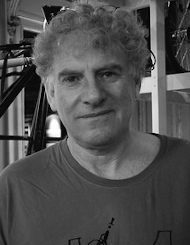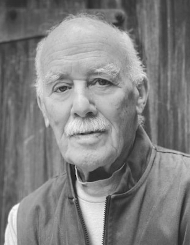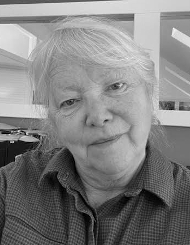-
An Essay in the History of the Radical Sensibility in America: Hawthorne, Melville, and Whitman
Price $19.99Hardcover
Special Order

Virtual Event: L.S. Halprin, Iain Boal, and Dick Russell
presenting
An Essay in the History
of the Radical Sensibility in America:
Hawthorne, Melville, and Whitman
moderated by LAURA FILLMORE
DateApr
29
Thursday
April 29, 2021 2:00 PM ET |
LocationJoin our online event (or pre-register) via the link in the event description.
|
Tickets
Free - $5 contribution suggested at registration
|
Harvard Book Store and the American Book Center welcome celebrated authors L.S. HALPRIN, IAIN BOAL, and DICK RUSSELL for a panel discussion of Halprin's latest book, An Essay in the History of the Radical Sensibility in America: Hawthorne, Melville, and Whitman. Their discussion will be moderated by e-publishing pioneer LAURA FILLMORE, founder of Open Book Systems, Inc.
Contribute to Support Harvard Book Store
While payment is not required, we are suggesting a $5 contribution to support this author series, our staff, and the future of Harvard Book Store—a locally owned, independently run Cambridge institution. In addition, by purchasing a copy of An Essay in the History of the Radical Sensibility in America on harvard.com, you support indie bookselling and the writing community during this difficult time.
About An Essay in the History of the Radical Sensibility in America
How do you use the word "radical?" Committed to the progressive? The cooperative? The communal? The equalitarian?
In so far as social, political, and economic power is sought and wielded in malice, just so far is benevolence radical. The history of social, political, and economic power has been mostly the history of malice. The history of benevolence has been mostly the history of radicalism. The sensibility that loves benevolence has been a radical sensibility.
In An Essay in the History of the Radical Sensibility in America, L.S. Halprin argues that before the middle of the nineteenth century the work of all American radicals was organized to defend some form of sentimental faith in millennial progress; that the work of the great writers of the middle of the nineteenth century was the first to be fundamentally free of the constraints of sentimentality; that despite that generation’s accomplishments, the old sentimentalities have persisted, perpetuating the cycle in which illusions designed to make radicalism’s chances seem better than they are become the disillusions which make them seem worse.
Along the way, Halprin unfolds something of the contribution of Edgar Alan Poe, Nathaniel Hawthorne, Herman Melville, and Walt Whitman to the specific content of the radical sensibility in America. Since the middle of the nineteenth century, the radical’s work has been primarily to accomplish political power. That work and the frustrations of it often leave little energy for the pursuit of a thoroughgoing self-awareness. Halperin's analysis is particularly useful now to remind readers of both the sentimentalities and the wisdoms from which we come.
Praise for An Essay in the History of the Radical Sensibility in America
“L. S. Halprin conveys his thoughts about the struggle for human equality through a deep analysis of the great classics of American literature. His writing invites reflection on the links between one's private and one's public self. He has a welcoming style, alternately simple and complex, which yields often surprising insights, always with an eye to the permanent value of each literary moment.” —Victor Wallis, author of Red-Green Revolution, Democracy Denied, and Socialist Practice
“Through this learned survey of radical thought in American history Halprin convincingly demonstrates that what is lacking in our political and economic life, and is therefore radical, is kindness. His argument carries the reader through some of our finest literary minds, unearthing fresh insights into the political implications of their work.” —Arthur Hoyle, author of Mavericks, Mystics, and Misfits: Americans Against the Grain
"In his reading of the 18th and 19th century American writers—Edwards, Franklin, Emerson, Poe, Hawthorne, Melville, and Whitman—L. S. Halprin considers the developing of the radical sensibility in America. This book is as thought provoking as it is heartwarming.” —Zhu Jiaming, Chairman, the Chinese Institute of Digital Assets

Harvard Book Store’s award-winning event series continues online! Named "Best of Boston: 2020 Best Virtual Author Series" and "2021 Best Virtual Author Series" by Boston magazine.
This family-owned bookstore, opened in 1972, has been quirky, friendly and knowledgeable from the start. The result is a personally curated assortment of titles throughout both stores in Amsterdam and The Hague. For more information, visit https://abc.nl/about.
(617) 661-1515
info@harvard.com
Media Inquiries
mediainquiries@harvard.com
Accessibility Inquiries
access@harvard.com
Classic Totes
Tote bags and pouches
in a variety of styles,
sizes, and designs, plus mugs, bookmarks, and more!
Shipping & Pickup
We ship anywhere in the U.S. and orders of $75+ ship free via media mail!
Learn More »Noteworthy Signed Books: Join the Club!
Join our Signed First Edition Club (or give a gift subscription) for a signed book of great literary merit, delivered to you monthly.
Learn More »












